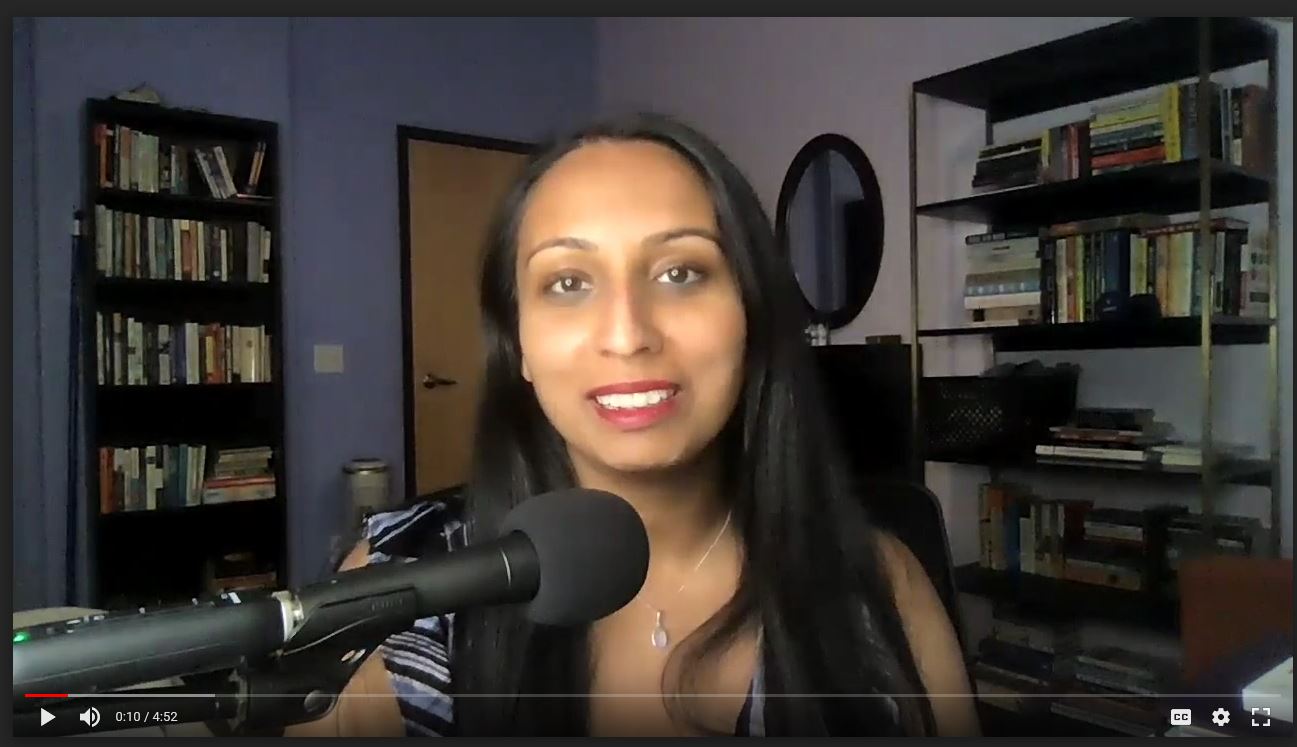To celebrate Asian Pacific American Heritage Month, members of the API ERG are sharing their personal heritage stories.
Aditi Chakravarty, Group Leader and Principal Strategist of the Learning and Organizational Development Office, lives in Oakland, thousands of miles from her family’s roots in South Asia. Her paternal grandparents migrated from what is now Bangladesh to West Bengal in the midst of religious violence, and her parents continued the journey to the U.S. Aditi tells her family’s story.
We invite other API members to contribute to our growing heritage video collection.
Hi everyone, my name is Aditi Chakravarty from the Learning & Organizational Development Office and I’m so happy to be able to share part of my heritage story with you.
My parents are immigrants from India, and they are my inspirations for everything I do in life. I could easily spend hours telling you about each of them and the ways in which they are trailblazing, prolific, resilient, deeply generous human beings.
But for this video, I’m going to share a piece of my father’s family history. I’ve spent so much of my life trying to understand my parents’ immigrant experiences here in the United States, but it’s only until more recently, that I’ve been examining the experiences of my grandparents and their parents. It’s so easy to forget that their choices and stories have literally made mine possible.
So my Dadu, my paternal grandfather named Jadu Nath Chakraborty, is my father’s greatest inspiration. In August of 1947, after 300 years of British rule, India was divided into 2 nation-states, India and Pakistan, as part of the deal for independence. Prior to partition, my paternal grandparents’ families had lived for generations in small villages in present-day Bangladesh. After partition, this area became East Pakistan. In this period, unthinkable violence erupted between Hindus and Muslims across the subcontinent, which was/is another ugly legacy of the British divide-and-rule strategy in India. So for both economic and safety reasons, my Dadu, who was only 25 years old at the time and his family’s breadwinner [since he was 17], made the difficult decision to leave his family and property behind and migrate to West Bengal on the India side for an engineering job which guaranteed housing. My grandmother, my Tamma named Surabala Chakraborty, was only 16 at the time, and had never left her village before her migration to West Bengal. My grandparents had 2 small metal trunks of possessions that they carried with them, and at one point, one of them was stolen. My Dadu always hoped to return to his family’s land in Bangladesh but unfortunately was not able to in his lifetime.
My father, Prasun Kanti Chakravarty, was born the year after partition in 1948, and he remembers how poor they were, how much his father scrimped and saved every rupee so that his son could go to school. My father is the oldest of 5 siblings and one of the sweetest anecdotes I’ve learned about him from my aunts and uncle is that when he was 10 years old, after seeing a chemical reaction demo from a teacher in school, he set up a makeshift lab in the corner of their shared room in their cramped living quarters. He knew from such an early age that chemistry was his calling.
Fast forward 18 years, and Dr. Prasun Chakravarty, my father, arrives in America on May 28, 1976 as a post-doc. He lands in Logan, Utah via Paris, his first time ever on a plane. He’s a hip 1970s man with a head full of hair, a deep talent for science, and a witty sense of humor. That’s how he wins over my incredible mother, Dr. Sumita Chakravarty, who travelled alone to Urbana-Champaign from Lucknow in 1977—unheard of among women of her generation—to pursue her dream of becoming a humanities scholar. Like with anyone, there are many threads to my heritage story, but I can’t help but think about how my Dadu used his lack of economic and educational privilege to ensure that my father had the opportunities that he did not. And then in turn, how my parents honored their parents’ many sacrifices by ensuring the same for my brother and myself.
My father is one of the main reasons I am here at Berkeley Lab. He has always had immense reverence for this place and is so excited that I work here. I hope someday when it’s safe for him to travel, I will be able to bring him up to the Hill.

